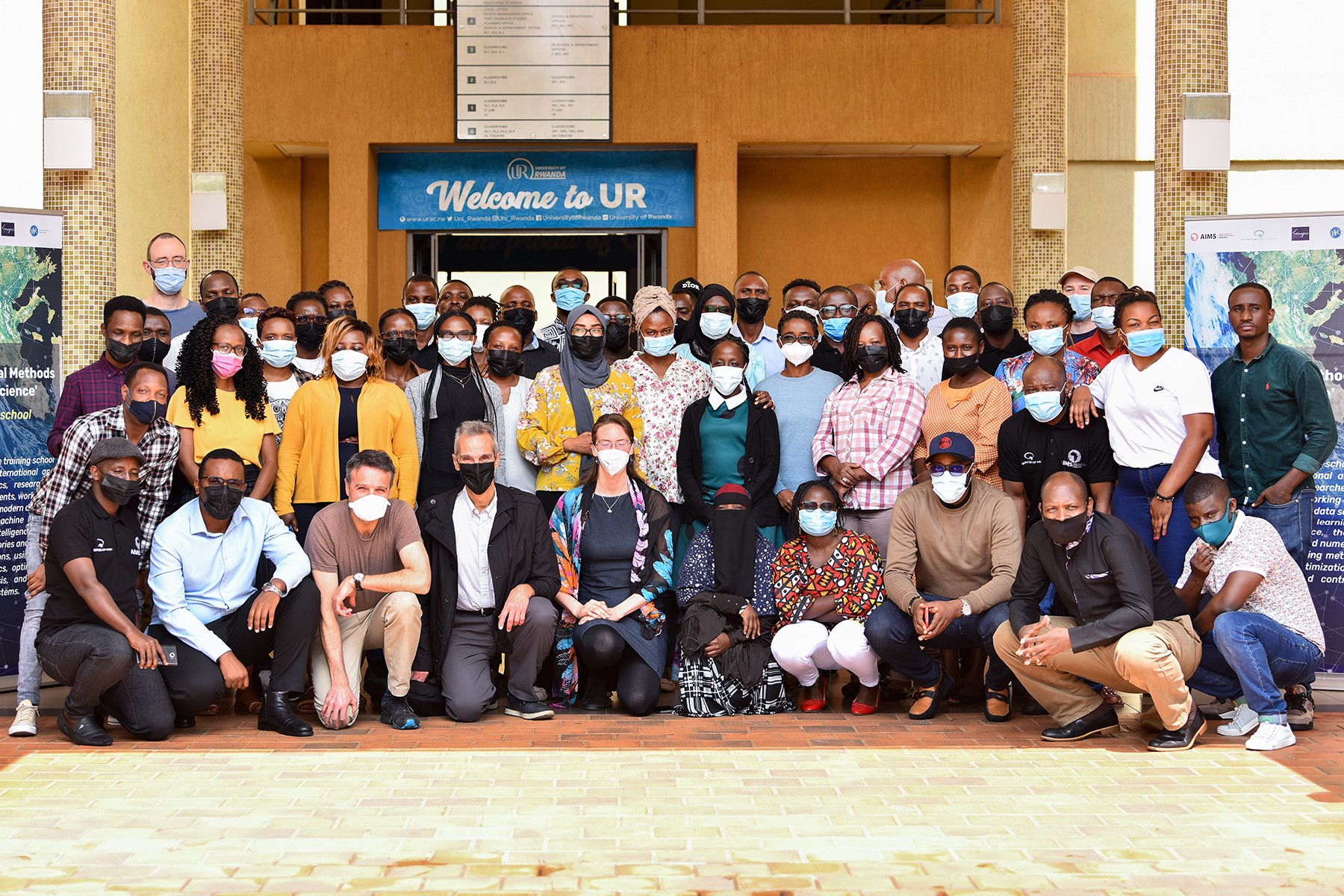Georgiou Teaches Top Graduate Students in Africa About Control Systems

Mechanical and aerospace engineering Distinguished Professor Tryphon Georgiou (first row, fourth from left) spent a week at the University of Rwanda as an instructor for Quantum Leap Africa, a program established to train the next generation of innovators in information science and technology.
May 19, 2022 - This spring, Samueli School Distinguished Professor Tryphon Georgiou traveled nearly halfway around the world to participate in Quantum Leap Africa, a program that provides postgraduate training to Africa’s top graduates in math, science and engineering.
Quantum Leap Africa was created by the African Institute for Mathematical Sciences (AIMS), which has scientific centers in South Africa, Senegal, Ghana, Cameroon, Tanzania and Rwanda. Its mission is to educate the next generation of innovators in information science and technology, advance high-impact research in data science and smart systems engineering, and drive the future information technology revolution through quantum information.
Georgiou spent a week at the University of Rwanda serving as an instructor in the “Foundational Methods in Data Science” session for graduate students. An intense three-week session with six instructors from top universities around the world, including University of Oxford and University of Bonn, the program drew students from 12 African countries.
“There were about 40 students participating in the program, with impressive backgrounds, creativity and eagerness to produce quality research and contribute to science, their communities and the world,” said Georgiou. “It was an especially humbling experience to hear their stories of resilience and perseverance through extremely adverse conditions to finally reach this level of achievement.”
Georgiou, who conducts research in the areas of dynamical systems, time series analysis, control theory and mathematical physics, has been cited for “his foundational contributions to the theory of robust control and to spectral analysis of time series” by the Society for Industrial and Applied Mathematics.
During his time in Rwanda, he presented a course on Methods from Control and Dynamical Systems, lecturing for 10 hours over a period of one week. He presented foundational ideas and techniques of control theory and explained how they are relevant in today's machine learning revolution. Discussion sections followed the lectures.
“Spending time with some students one-to-one, mentoring and connecting them with other professors of relevant interest at UCI and elsewhere, was truly a rewarding experience,” he said.
The program attracted a superb cohort of students, according to Georgiou. Fifty percent were women, and the countries represented included Ivory Coast, Benin, Ghana, Cameroon, Nigeria, Chad, Sudan, Zimbabwe, Democratic Republic of Congo, Uganda, Swaziland and several from Rwanda.
“Their background was very diverse,” he said. “For example, Thembelihle from Swaziland was working on quantum information and Jean de Dieu from Ivory Coast was working on financial mathematics. Both were exploring optimization and machine learning for their respective fields. Others were already using machine learning for weather prediction, problems in power, etc.”
Georgiou said the students were as good as those in any of the top universities in the U.S. and exceptionally motivated not only to advance science and engineering, but to help their home countries and the development of academics in Africa. “I am certain that these students will have a big impact in their respective countries – they will lead and effect changes that will benefit the quality of life, the economy and academics in Africa. If you could see the determination in their eyes, you would understand.”
– Lori Brandt
